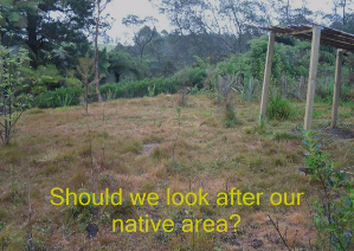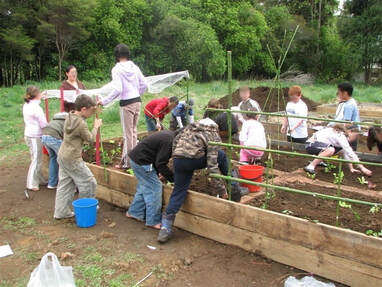Authenticity
“Construction of knowledge, through disciplined inquiry, to produce discourse, products and performances and that have
meaning beyond success in school.”
Wehlage, Newman & Secada
meaning beyond success in school.”
Wehlage, Newman & Secada
|
An authentic inquiry is one that is grounded in the real world and is something an adult might undertake. It should create rather than re-create knowledge. It is a continuum and whilst we cannot always have completely authentic inquiries we should be aiming for as much authenticity as possible.
Audrye Rule lists the 4 characteristics of authentic learning as: Real World Problems, Inquiry and Thinking Skills, Discourse in a Community of Learners and Student-directed Learning. The Authenticity section of the Inquiry Rubric on the Galileo.org site is also worth looking at. The final section of the rubric says: "The scope of the study emanates from a question, problem, issue or exploration that is significant to the discipline(s) and the community locally, provincially, nationally or globally; is meaningful and relevant to students; and is mapped to the mandated curriculum" I would add, however, that it could also be significant (as well as relevant) to the student, especially when we are talking about young children. As they get older I would also be looking for some positive impact on others (locally, nationally and/or globally) from their explorations. Where an inquiry does not naturally evolve from a real-life problem or task we should continually ask ourselves, once our purpose is clear, what this would look like in the real world outside of school. Our learners need to be doing the work of real scientists, artists, writers etc. Examples of authentic learning can be found here. More on student agency and ownership of inquiry. Resources
The Mummified Chicken, Mutant Frogs, and Rockets to the Moon
Project-based learning in action in a US secondary school. A great example of inquiry in action with authentic learning and student ownership and engagement in abundance. |
"Learning for the 21st century, it is argued, should support students to engage in knowledge-generating activities in authentic contexts. Students must learn to recognise and navigate authentic problems and challenges in ways that they are likely to encounter in future learning situations."
Bolstad & Gilbert 
"Instead of thinking of a school as a place where 300 young people attend to be provided with an education, try thinking about a school as a research site, populated with 300 small sized researchers."
"Rethinking the role of schools as producers of useful and valuable knowledge opens up many important questions. Equally, it positions schools as an important new resource for the community and provides students with valuable experience in serious knowledge work" Chris Bigum Computers in New Zealand Schools July 2003 p. 26 |
References
- Bolstad & Gilbert (2012) Supporting future-oriented learning and teaching: A New Zealand perspective.
- Jardine, D.W. (2002) Choosing a topic
- Wehlage, G., Newman, F. & Secada W. (1996). Standards for authentic achievement and pedagogy. In Newman F. M & Assoc. (Eds.) Authentic achievement: Restructuring schools for intellectual quality. San Francisco: Jossey-Bass
2021


